
Layout, design and features …
Let us take a closer look at the APC Back-UPS Pro 900 power-saving battery backup.

At the beginning it is noticeable that it is a relatively large device. This is due to the fact that the necessary batteries are built-in as well as the inverter and other electronics.
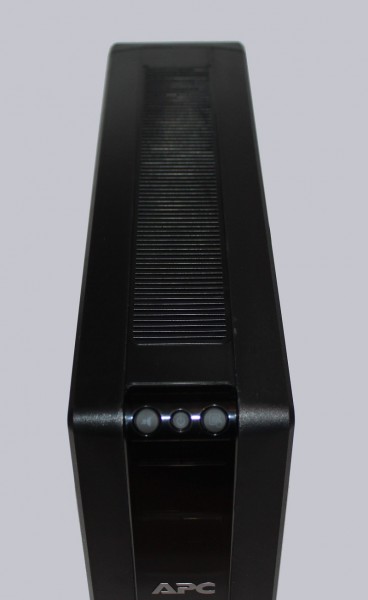
Numerous ventilation louvers ensure the fresh air supply. The large LCD informs the user at all times about the condition of the batteries, the UPS as well as the power supply. The three menu buttons switch off the device, deactivate the acoustic alarm or select specific information.
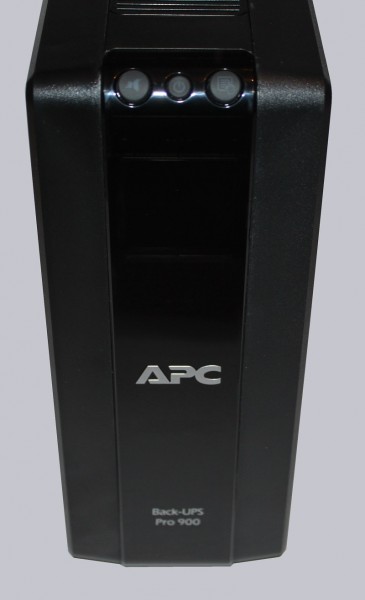
The rear holds many interesting connections for us at hand. Immediately, the five large grounding sockets are located angled on the back. Thus, it is also possible to connect angled connectors without blocking an adjacent slot.
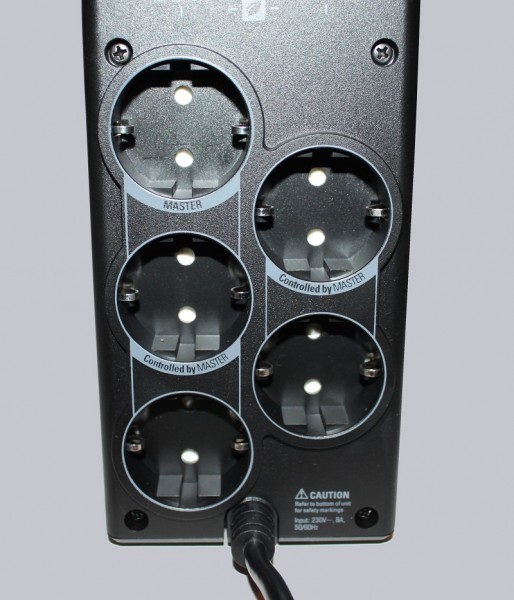
Furthermore, in the upper part are the connections for the network connection, the telephone line as well as the USB/serial connection via a RJ45 connector.
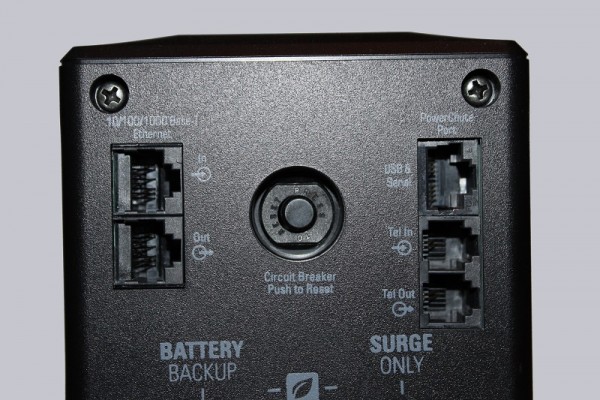
The reset for the integrated fuse is located centrally. Looking at the side …
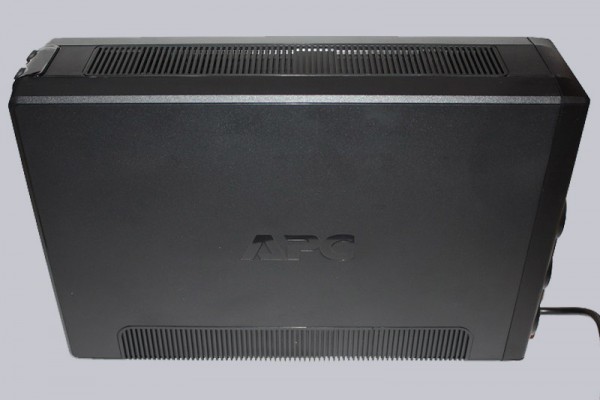
… uhm, on the other side ;), the UPS immediately shows us a large note, which was similar to a receipt. A complete test report of the UPS, in which all functions and protective mechanisms have been successfully tested, is printed on it.
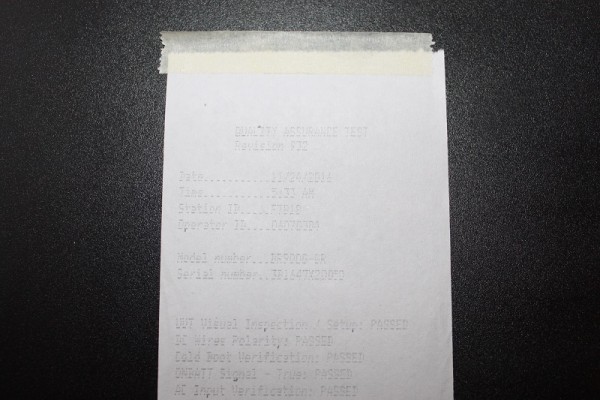
The bottom of the APC 900VA UPS is also very interesting.
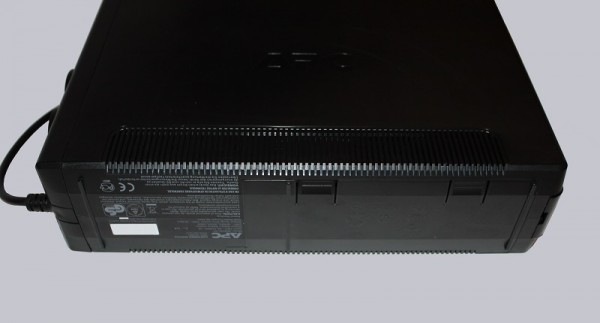
If you open the battery compartment cover, you can immediately see the large battery block, which can be pulled out of the housing by two flags. In order to avoid unwanted discharging between manufacture and use, the batteries are inserted securely, without contact with the electronics of the UPS.
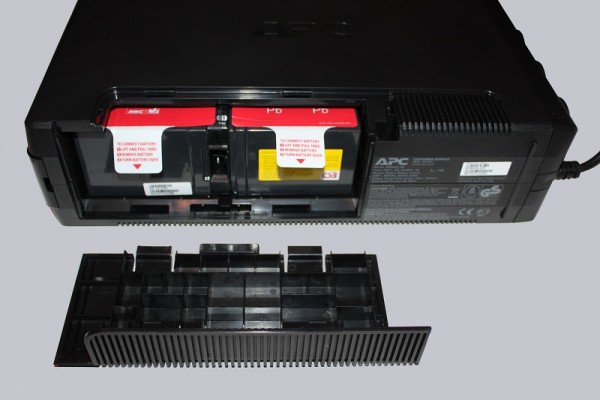
If you turn the battery around, the green stickers signals a functioning operation.
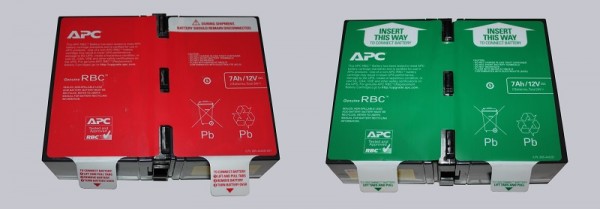
If the batteries have been inserted in thr right way, the most important informations are displayed on the LCD.
The voltage, the instantaneous buffer time as soon as the current fails, the current power consumption, the load of the UPS in percent as well as the power supply frequency can be displayed. In addition, the internal loudspeaker, which makes a loud noise in the event of a power failure, can be switched off.

Let us now come to the inside of the APC 900VA UPS.
Electronic …
The UPS is not as easy to open as expected. But we would not be at OCinside, if we did not get it opened.
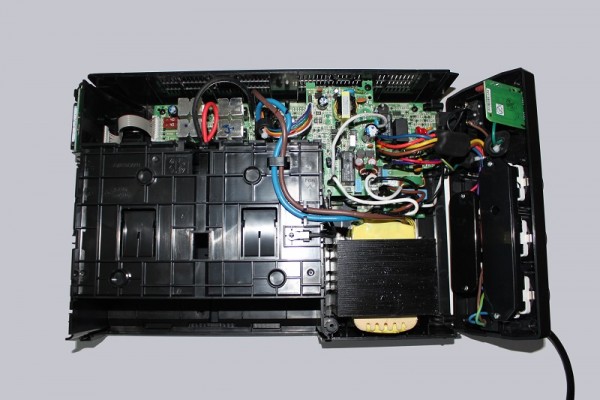
The processing inside is impeccable. We could not see any unclean or faulty solder joints.
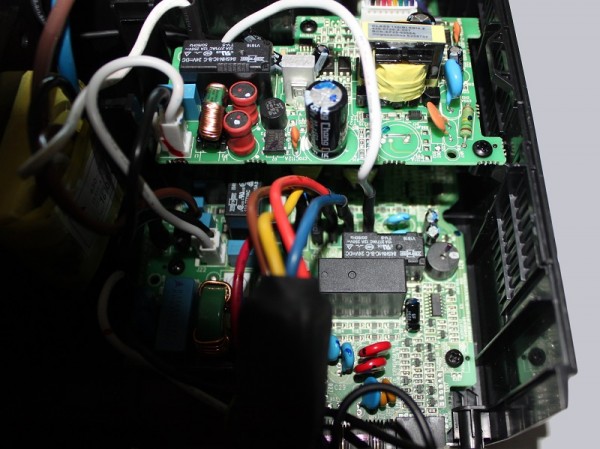
The safety system contains these two plug-in fuses similar like those in cars, which each protect within 40 amperes. Unfortunately, these fuses are soldered to the board. This makes an exchange for the user not impossible, but requires soldering skills. In general, however, the UPS should be sent to the manufacturer in such a case and should not be opened by itself!
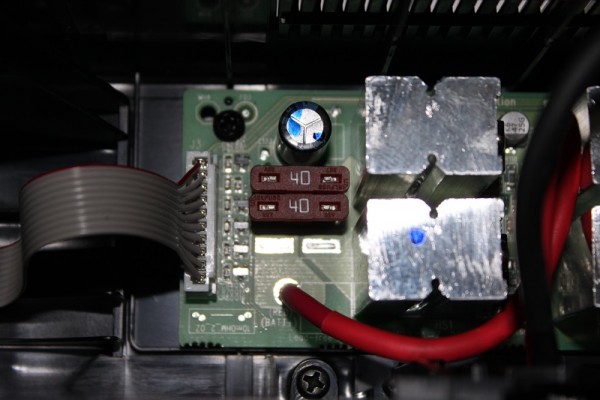
The large power transistors have generous heat sinks which ensure sufficient cooling.
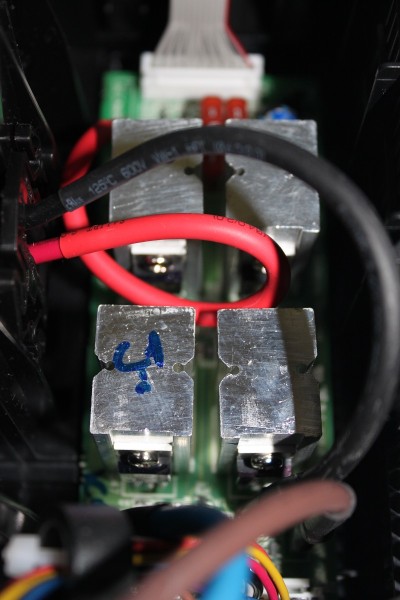
The large transformer is unfortunately not 100% attached and could quickly be considered as a generator of the previously mentioned coil whine. Nothing you could not handle with two or three drops of hot glue.
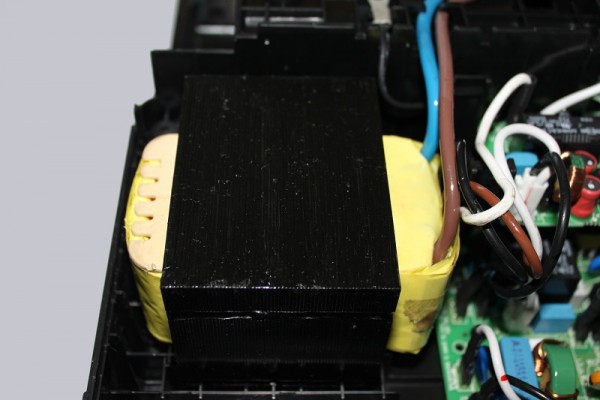
If you are already there, you could also supply the other coils with some hot glue or epoxy resin.
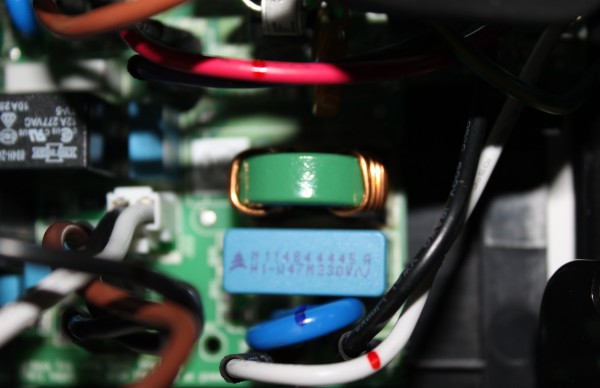
But now we come to another very important element of the APC 900VA UPS. The software!
Software …
Another big point in our report is the included software called “Power Chute”. The software is available in the “Personal Edition” version and provides all important components for the communication between PC and UPS. After the installation we see the following menu.
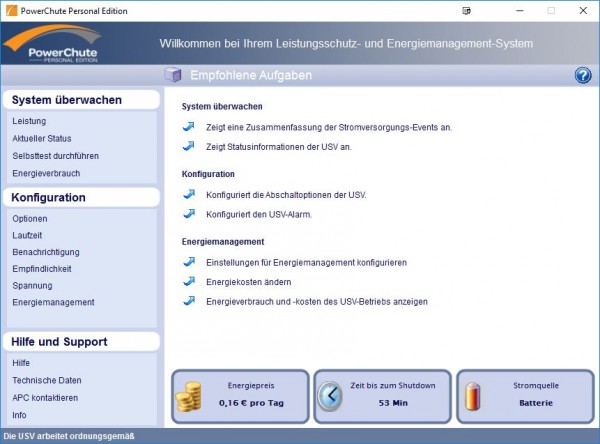
Under the item “Performance” the user can inform himself about logged power failures or other important events.
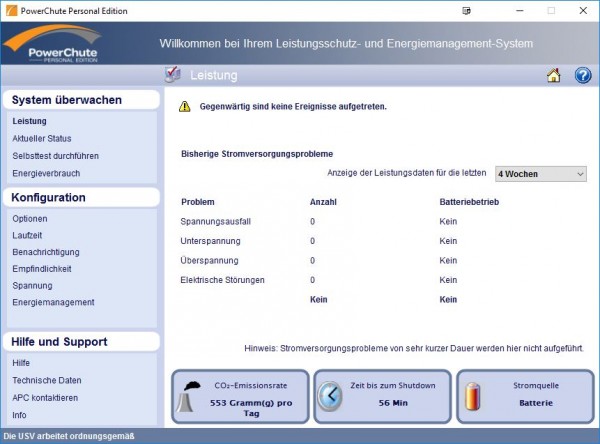
The current status is the menu, which gives information about the status of the UPS. At this point, the system power consumption and the charge level of the integrated rechargeable batteries are important.
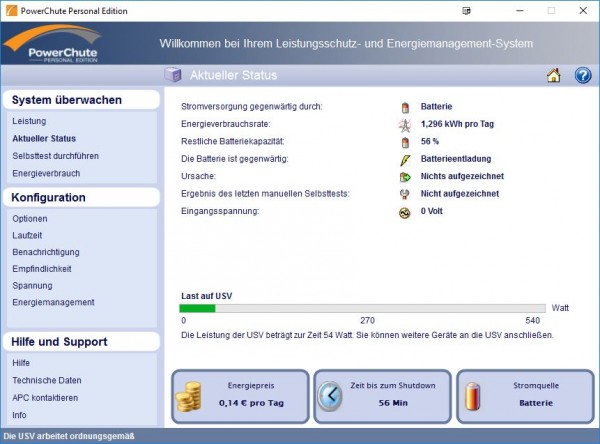
In the “Self-test” menu item you can manually test all basic UPS functions. This is also done with every start of the UPS, but can also be carried out without restrictions during operation.
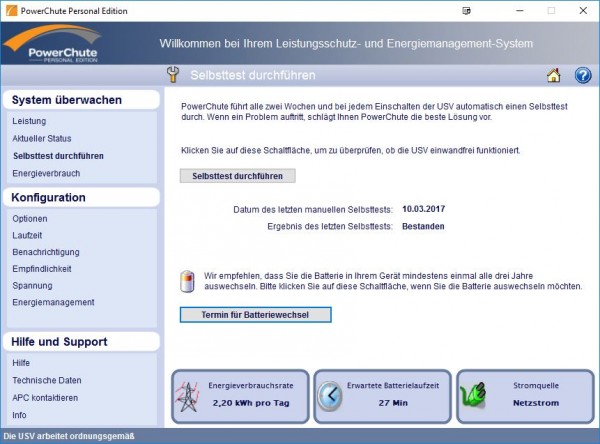
The point “energy consumption” confronts us with our conscience. Various statistical values are determined on the basis of the power consumption. This can be done with records that go up to one year.
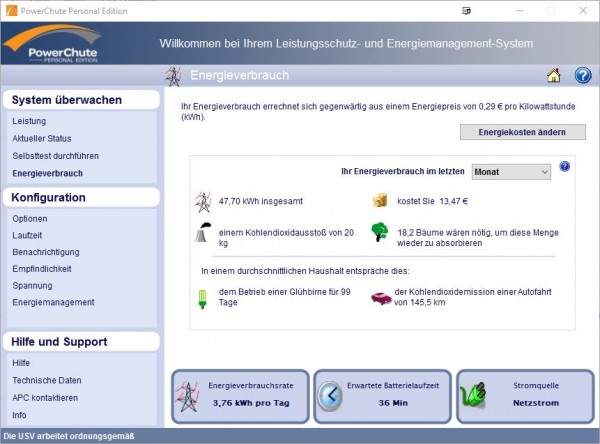
In the options the start conditions, software updates, signal tones as well as the information transmission can be activated.
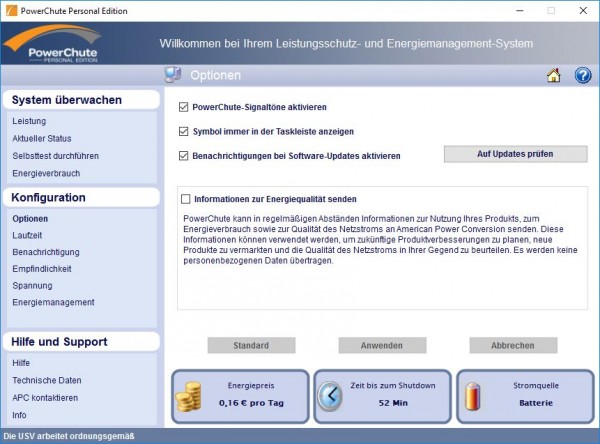
Two different methods can be selected for the running time. On the one hand it is possible to have the system automatically shut down after a certain number of minutes. Furthermore, it is possible to use the entire runtime of the UPS up to a self-selected threshold value.
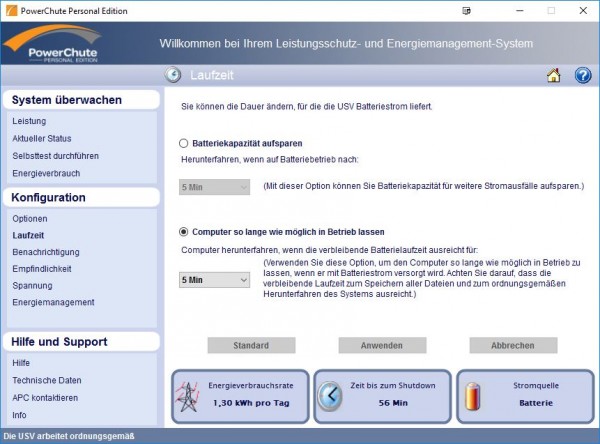
Regarding the notifications, the user can adjust the signal tones of the UPS according to his needs.
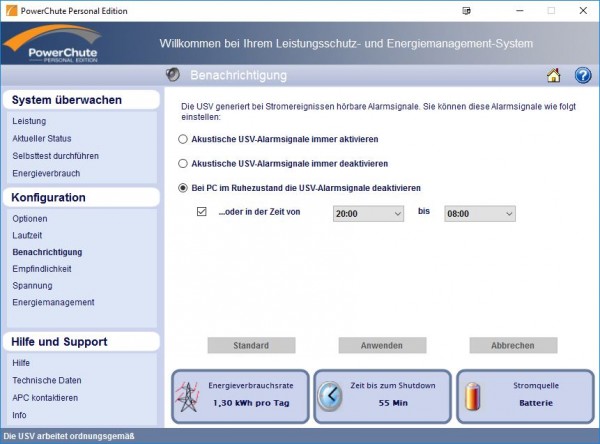
In the following menu item “Sensitivity” the sensitivity of the switching to battery operation can be selected in three stages.
Depending on how stable and clean the power supply voltage is, according to the setting the battery operation is activated.
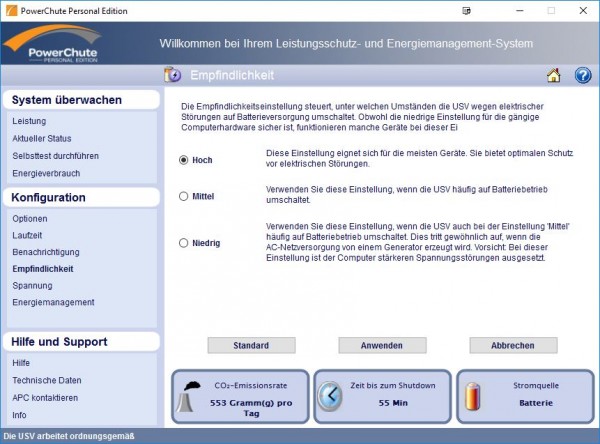
In addition, there is the possibility in the voltage menu to set a threshold voltage, from which the UPS switches to the battery operation. Unfortunately, the upper and lower limits begin at 288 volts or 176 volts. Since most of the PSUs also run at 110 volts, it can be preferred not to expose its hardware to a much higher voltage than 230 volts.
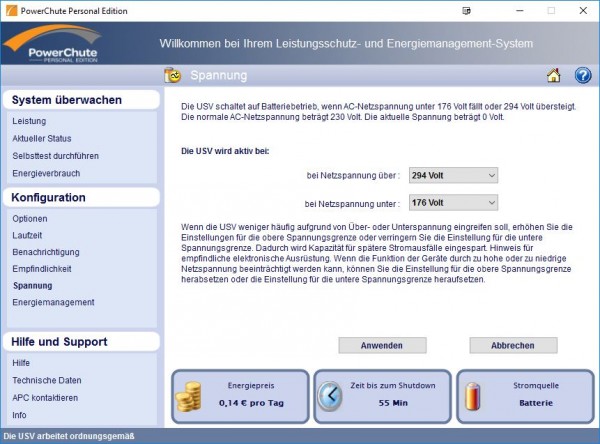
The item “Power management” is used to control the master and slave sockets at the rear of the UPS. The switch-on or switch-off time can be adjusted as well as (1-3600 sec / 1-60 min) the power threshold of the master socket, from which the slave sockets are activated.
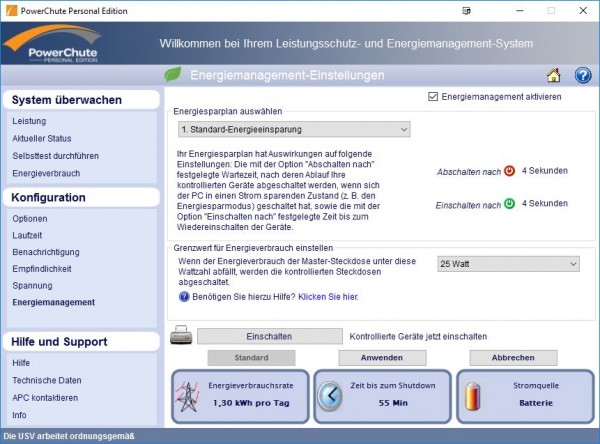
The last menu items are for the help function, as well as the information concerning the software and the contact of the support.
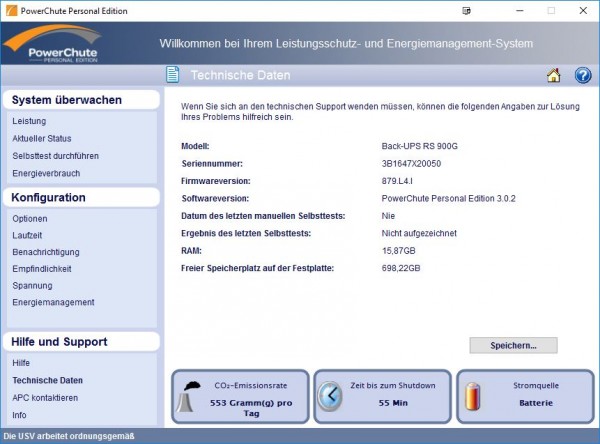
So we have arrived at the end of our little tour. Next, we will put the APC 900VA UPS into operation and see how it will work in daily use.
APC Back-UPS Pro 900 USV Installation and operation …

